Facing the Uncertainty of Prostate Cancer with My Doctor
A prostate cancer diagnosis often comes with a mountain of new information to digest. Doctors are there with us through the entire process from screening through diagnosis, treatment, and aftercare. Our 2020 In America survey highlights how healthcare teams help us navigate the physical and emotional obstacles that come with facing the uncertainty of prostate cancer.
What doctor do you see routinely for your prostate cancer?
During the initial diagnosis phase, men are typically referred out to a specialist, and urologists are the leading diagnostician. Following diagnosis and throughout treatment, urologists continue to be the most frequently seen healthcare professionals. However, 40 percent of men do consult some type of oncologist as part of their care.
Picking the right treatment plan
There can be a lot of factors to consider when deciding on a treatment plan. Over 8 in 10 men said their healthcare professional helped them select their treatment plan. Efficacy is the most important factor that influences treatment decisions followed by assessing potential side effects, the long-term safety of the treatment, and the convenience and ease of taking the medication. Yet men also stressed the importance of seeking advice from friends or family members as well as other prostate cancer survivors when deciding on treatment options.
Seeking a second opinion
Selecting a treatment plan can be a complicated decision. One piece of advice men frequently give to someone newly diagnosed with prostate cancer is to seek a second opinion. 56 percent of men sought a second opinion, with nearly 3 in 10 doing it when first selecting their treatment.
Do doctors talk about the emotional side effects?
Prostate cancer can take a heavy emotional toll. Overall, 58 percent of men experience changes to their emotional health. Men report feeling anxiety (31%), depression (30%), stress (29%), loneliness or isolation (21%), fear (15%), and increased anger (12%) after prostate cancer. However, only 1/3 of men have discussed these changes with a doctor.
Satisfaction with HCPs
The relationship between doctors and men affected by prostate cancer must be built on trust and mutual understanding. Despite the uncertainty that comes with prostate cancer, 72 percent of men say their care team did a good job relaying information about their diagnosis, stage, and type. Additionally, 72 percent say they received easy-to-understand test results and clearly explained treatment options.
How does your experience with your doctors and healthcare team compare? Tell us by sharing your story with the ProstateCancer.net community.
The Prostate Cancer in America 2020 survey was conducted online from November 2019 to April 2020. Of the 1,162 people who completed the survey, 1,162 were people who have been diagnosed with Prostate Cancer.
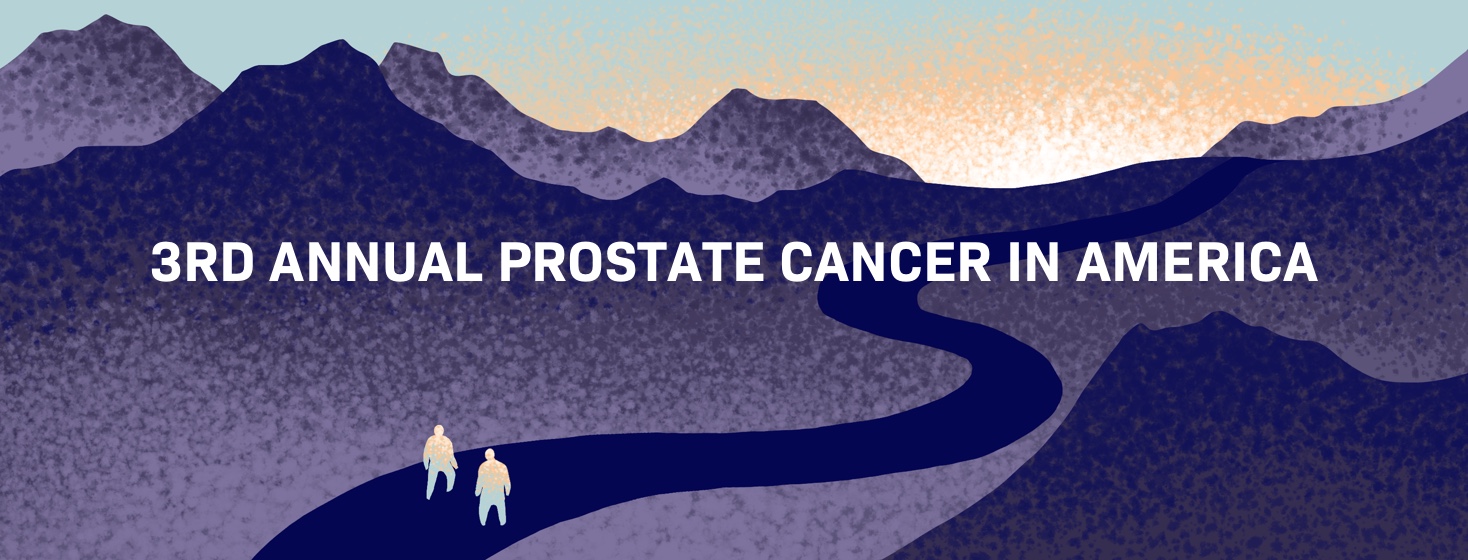
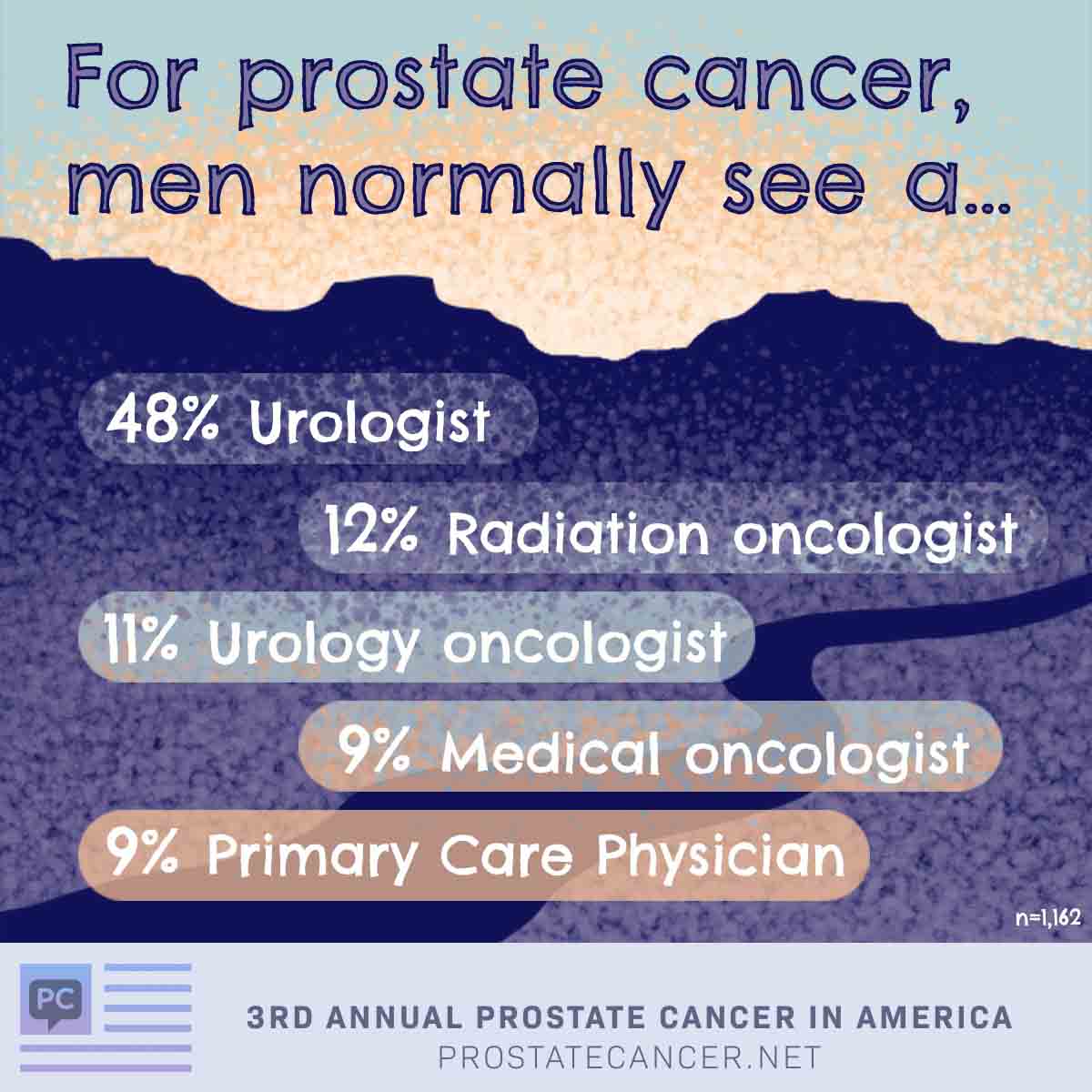
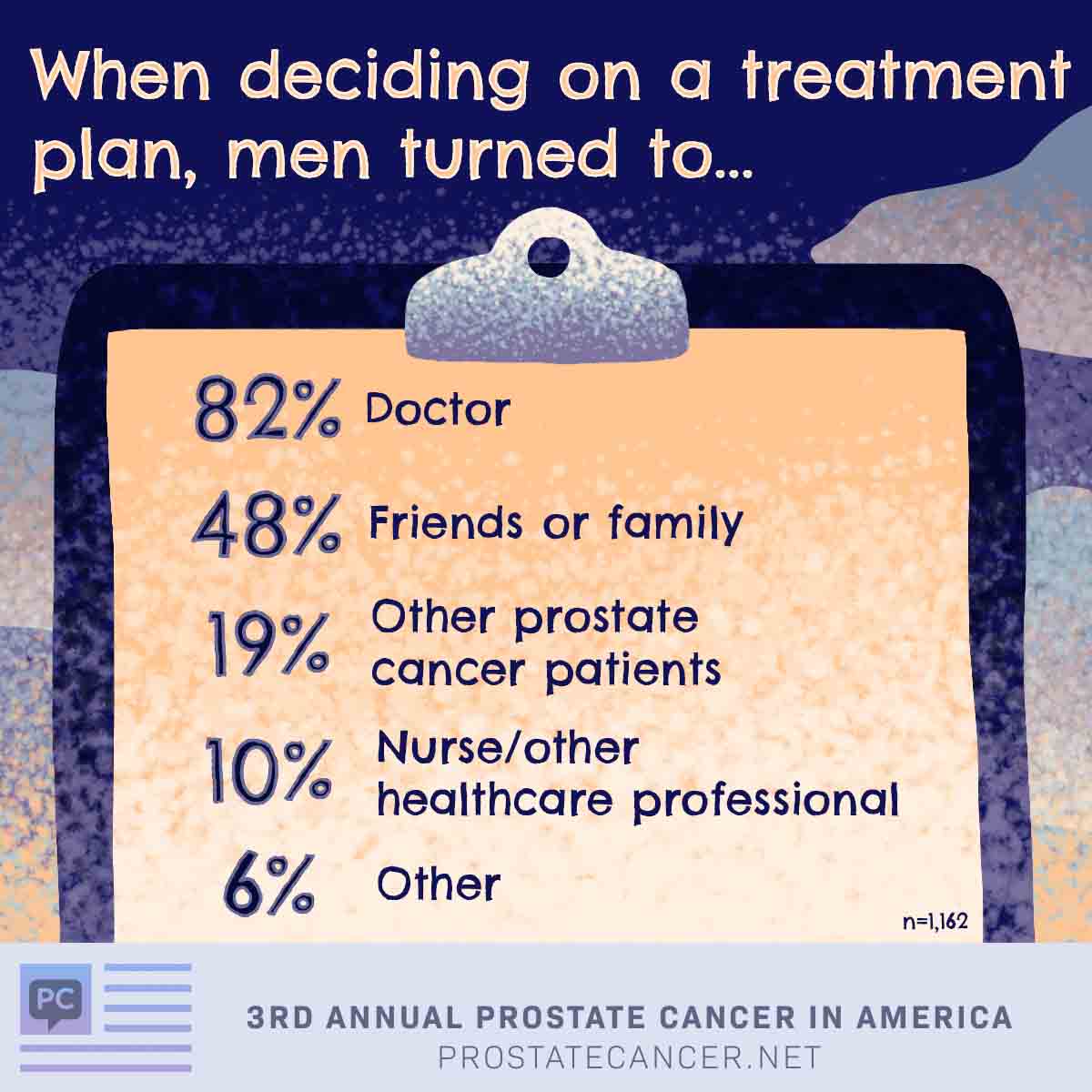
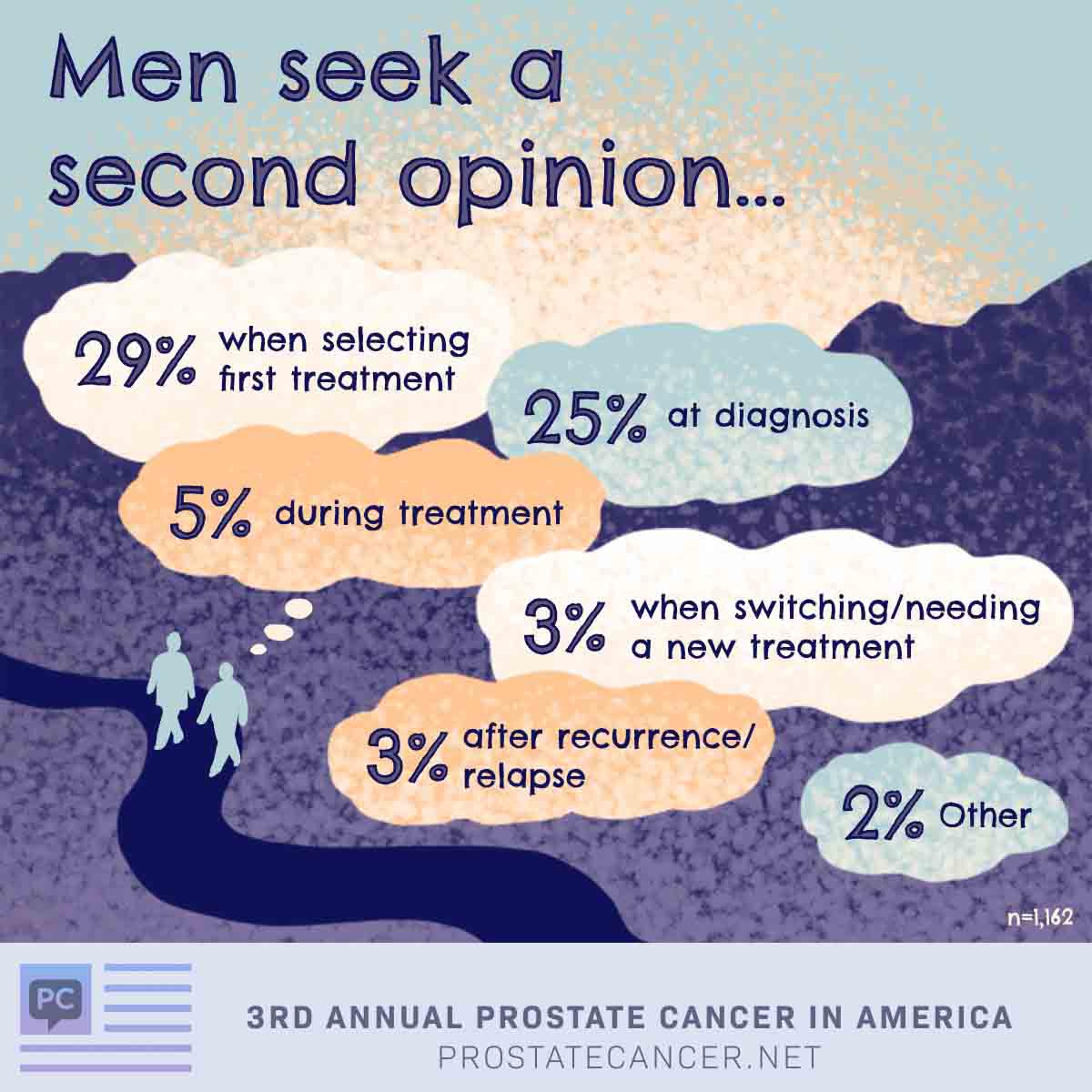
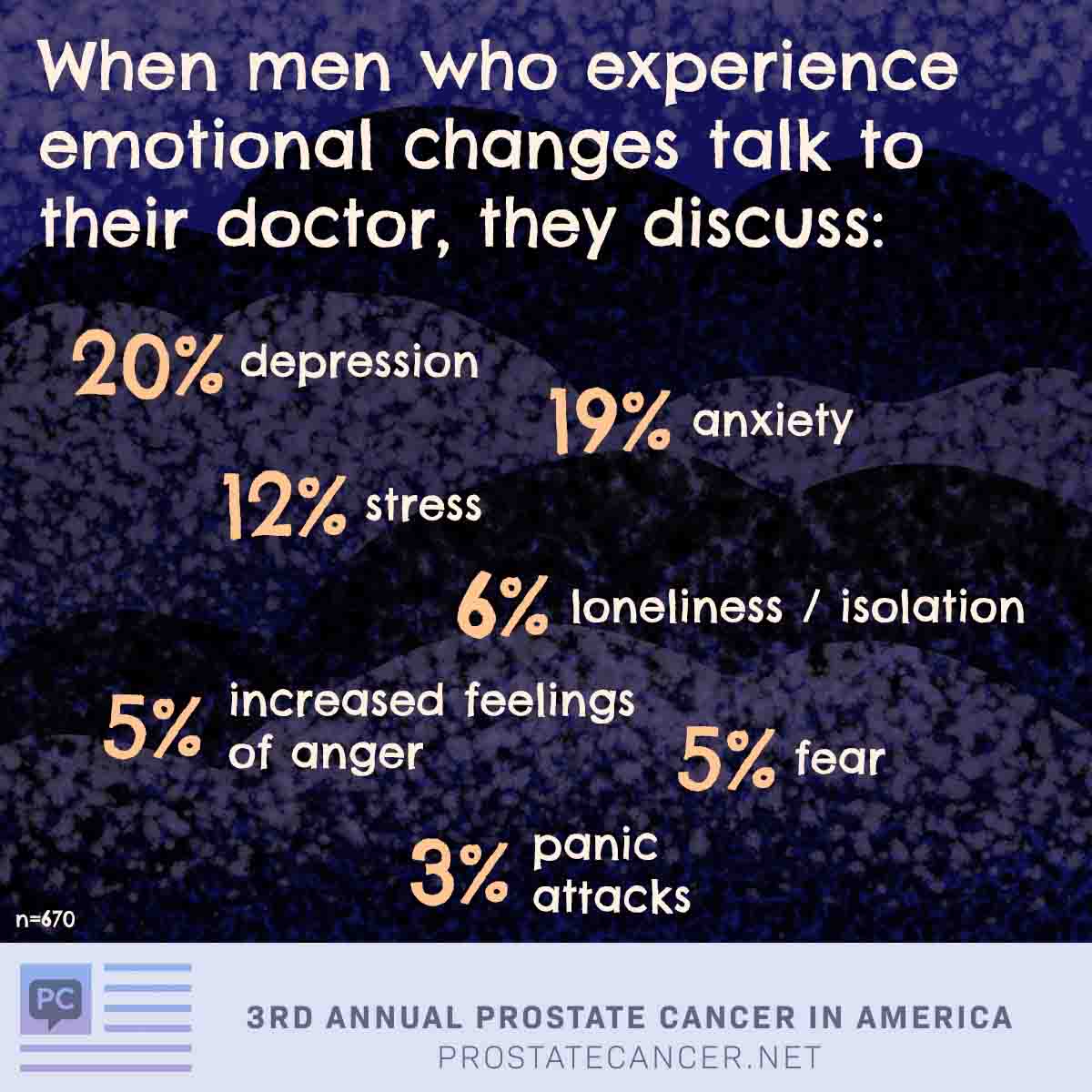
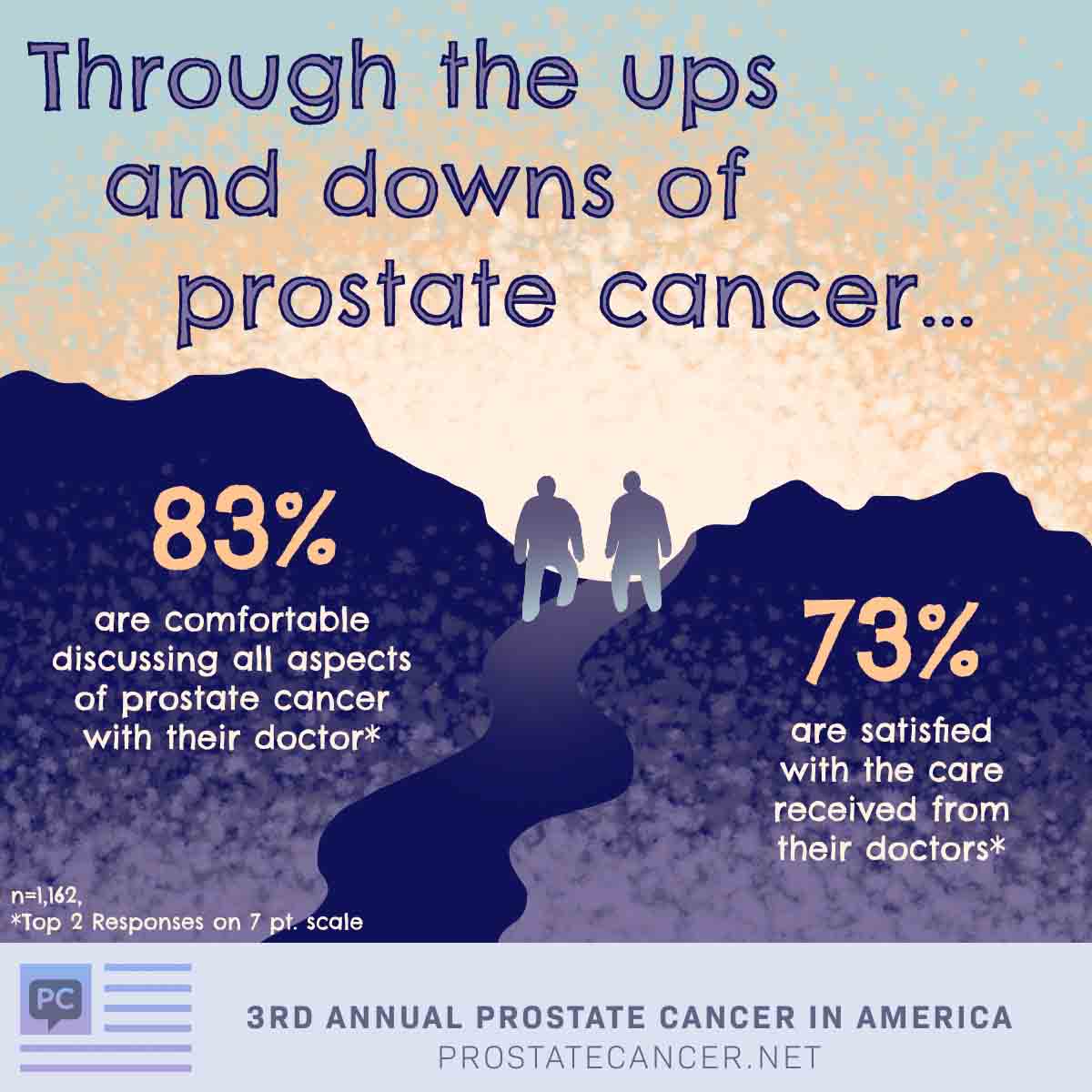
Join the conversation